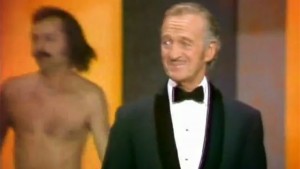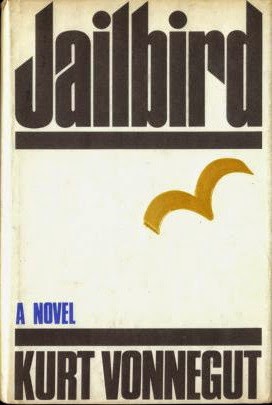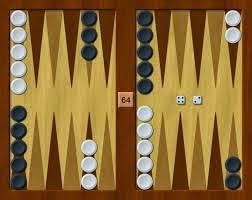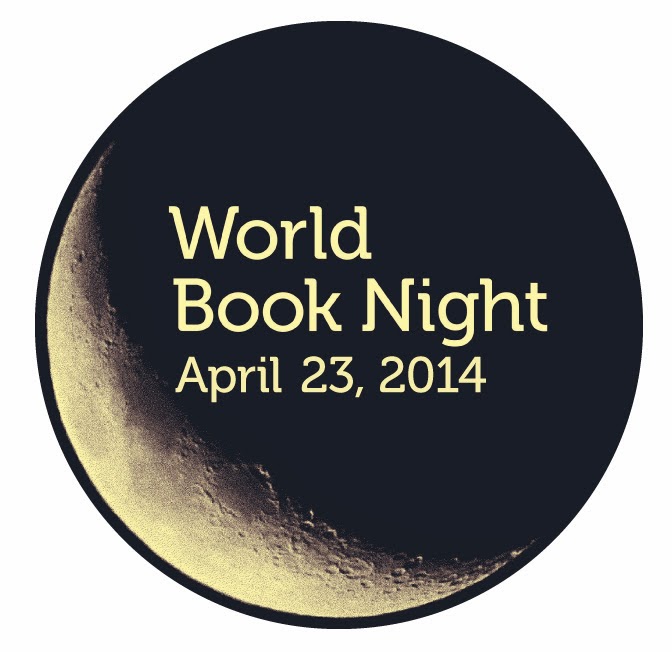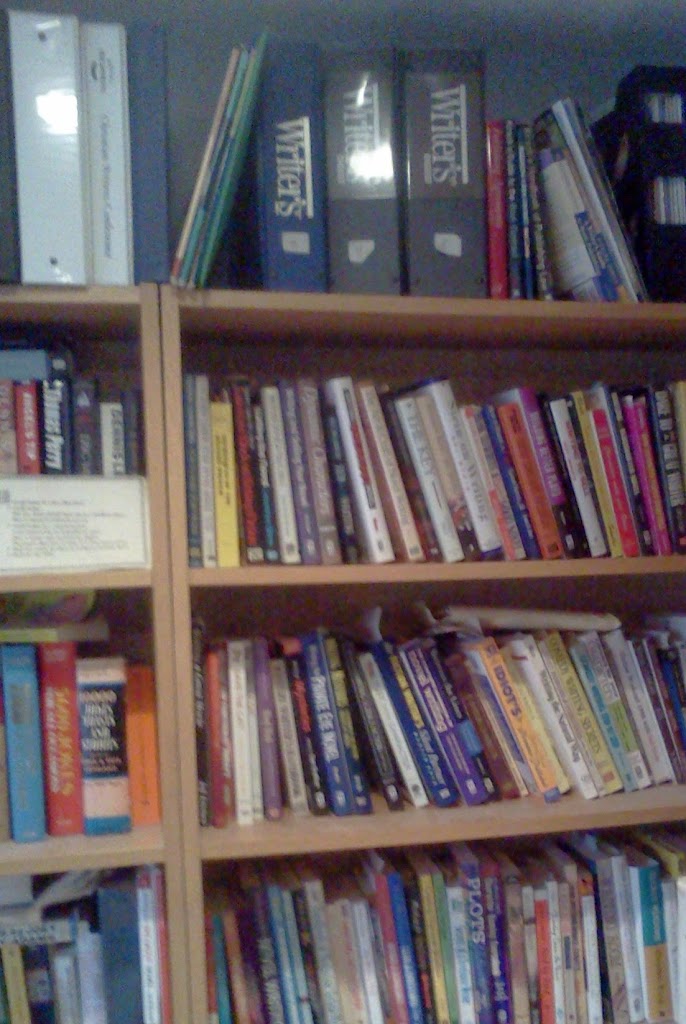Yearly Archives: 2014
Making Money (or not) in the Book Biz
Reader Friday: Which Conferences Are You Attending This Year?
Anonymous Question Submission: On Reviews
Jordan Dane
@JordanDane
Paraphrasing the question submitted to TKZ anonymously: What do you think of “online bullies” who post mean-spirited book reviews to discredit the author when they don’t even read the novel.
If someone has clearly not read a novel yet writes a review, why should I pay attention to that at all? (I’ve spent too much time already talking about this, so I will move on to my thoughts on reviews, in general.)
Recently I heard an actor talk about paying attention to reviews and how it could affect his performance—whether the reviews were good or bad. I find words of wisdom and encouragement in the creative arts–like filmmakers, actors, musicians—because they know what it takes to create something from nothing with passion. So when I heard this actor speak, I could relate his words to my own thoughts. He believed reviews, whether good or bad, detracted from the work in the moment or for the next performance. If a reviewer believed the actor’s performance was emotional and touching in a particular scene, those words would stay in the actor’s head the next time he did his job, when maybe the scene (on page) didn’t call for the same emotion. Negative reviews can act in the same way and cultivate self-doubt (which none of us need).
In applying what he said to writing, a good review can sway an author to manipulate the writing to “fit” what the reviewer wrote about the work. It could affect every book in the future in the same manner. Bad reviews can make an author overly sensitive to whatever harsh criticism was written, whether deserved or not. The author could overcompensate and alter their growth. Chasing after reviews, whether good or bad, can detract from a writer’s instincts on storytelling. They can make an author doubt the story telling talent that got them published in the first place.
I also heard it said, long ago in my energy industry career, that if you don’t value (or know anything about) the credibility of the person giving their opinion of your work, why should you care what they think or say? Easier said than done for some, but I’ve embraced this sentiment.
As an author, I tend to value Publishers Weekly to give me a sense of a book, but it doesn’t stop me from buying it if the book gets a marginal PW review. If the story interests me, I make my own decision. Any reading experience is subjective for everyone. Because I understand how difficult it is to tell a story on page, I am much more appreciative of an author’s style or voice or plot structure. I love reading many types of books and I try to find “gem takeaways” in an author’s writing, rather than me bristling for the opportunity to reject their work and show how brilliant I can be at “snark.”
As a new author, I paid attention to reviews. I don’t anymore and haven’t for a long time. It’s my choice and it’s freed my time so I can spend more hours on writing and honing my craft. Like the actor I mentioned, I don’t want to be swayed by opinions whether the reviews are good or bad. It’s human nature to sift through many good reviews, but become totally obsessed over a negative one. Snarky reviewers are the worst. They tend to “believe their own hype” and love having the reputation for overly harsh reviews they think are clever. Their reviews tend not to be about recommending good books or encouraging literacy, they become about how unkind the review can be in degrading the work. Fortunately not all reviewers are like this. Most are not.
If someone wants to be critical of a writer’s work, I issue a challenge. Write your own book. Cut open a vein and bleed on the page with an honest story and deal with the critics (or note) afterwards. Authors must be willing to tell their stories, without fear. There will always be negative opinions, but my focus has been on my own growth and striving to tell my stories, my way. I want to be the best Jordan Dane I can be and I keep writing.
As for sites where readers congregate (like Goodreads, Fresh Fiction, Just Romantic Suspense, Amazon, B&N, and many other review sites), I appreciate their value for readers to talk about books. That’s great. Goodreads, Fresh Fiction, and Just Romantic Suspense in particular are reader communities that promote literacy and they encourage reading (in general) by giving followers a place to focus their interest in books. A lovely thing.
I have a profile presence on some of these sites. I RSS feed my blog posts to my author profile, respond to comments, and do giveaways to raise awareness of my projects. Other than that, I don’t sift through reviews, whether they are good or bad. It’s a detractor of time I could spend writing. There will always be one-star reviews, even on noteworthy critically acclaimed books.
For discussion:
Readers: How much attention do you pay toward reviews? Do reviews sway you to buy or avoid a novel? Have you ever read really bad reviews on a book you liked? If so, did it change how you look at reviews?
Writers: How do you deal with reviews (good or bad) on your work?
Predicting the future
By Joe Moore
@JoeMoore_writer
In a recent article in THE TELEGRAPH, the founder of the famous Waterstone’s London book store, Tim Waterstone, stated that the “printed word is far from dead” and  the “so-called e-book revolution will soon go into decline.” He joked that insiders were generally “apocalyptic” about the book industry’s prospects but said he refused to believe the traditional physical book was under threat.
the “so-called e-book revolution will soon go into decline.” He joked that insiders were generally “apocalyptic” about the book industry’s prospects but said he refused to believe the traditional physical book was under threat.
I tend to agree with Mr. Waterstone in as much as most bookstores I visit are packed with books and people buying them. I know it’s a simplistic measure of current trends, but when I start seeing large sections of empty shelves in book stores, I may change my viewpoint.
I disagree with him about e-books. So does Gaby Wood, who also wrote an article on the subject in THE TELEGRAPH. She states that “Booksellers are the group most threatened by the possible death of the printed book, and they have a reason to think wishfully of the digital book’s demise.” She also said that publishers have got to stop thinking of their digital products as “books”, and start imagining more expansive ways of communicating information. Until then, the digital revolution hasn’t even begun.
I think Gaby Wood has it right—this whole electronic publishing wave has just gotten started. The possibilities for industries like publishing, education and entertainment are endless. To say that e-books will soon go into decline is a prediction that may become laughable in the future.
To put this prediction business into perspective, let me share with you some famous visionaries of the past whose predictions carried a great deal of weight when first put forth, but didn’t stand up to the test of time. Enjoy.
"This ‘telephone’ has too many shortcomings to be seriously considered as a
means of communication. The device is inherently of no value to us."
— Western Union internal memo, 1876
"Computers in the future may weigh no more than 1.5 tons."
— Popular Mechanics, forecasting the relentless march of science, 1949
"I think there is a world market for maybe five computers."
— Thomas Watson, chairman of IBM, 1943
"640K ought to be enough for anybody."
— Bill Gates, 1981
"I have traveled the length and breadth of this country and talked with the
best people, and I can assure you that data processing is a fad that won’t
last out the year."
— The editor in charge of business books for Prentice Hall, 1957
"But what… is it good for?"
— Engineer at the Advanced Computing Systems Division of IBM, 1968, commenting on the microchip
"There is no reason anyone would want a computer in their home."
— Ken Olson, president, chairman and founder of Digital Equipment Corp., 1977
"The wireless music box has no imaginable commercial value. Who would pay
for a message sent to nobody in particular?"
— David Sarnoff’s associates in response to his urgings for investment in the radio in the 1920s
"The concept is interesting and well-formed, but in order to earn better than a ‘C,’ the idea must be feasible."
— A Yale University management professor in response to Fred Smith’s paper proposing reliable overnight delivery service. Smith went on to found Federal Express Corp.
"Who the hell wants to hear actors talk?"
— H.M. Warner, Warner Brothers, 1927
"I’m just glad it’ll be Clark Gable who’s falling on his face and not Gary Cooper."
— Gary Cooper on his decision not to take the leading role in "Gone With The Wind"
"We don’t like their sound, and guitar music is on the way out."
— Decca Recording Co. rejecting the Beatles, 1962
"Heavier-than-air flying machines are impossible."
— Lord Kelvin, president, Royal Society, 1895
"So we went to Atari and said, ‘Hey, we’ve got this amazing thing, even built with some of your parts, and what do you think about funding us? Or we’ll give it to you. We just want to do it. Pay our salary, we’ll come
work for you.’ And they said, ‘No.’ So then we went to Hewlett-Packard, and they said, ‘Hey, we don’t need you. You haven’t got through college yet.’"
— Apple Computer Inc. founder Steve Jobs on attempts to get Atari and H-P interested in his and Steve Wozniak’s personal computer
"Professor Goddard does not know the relation between action and reaction and the need to have something better than a vacuum against which to react. He seems to lack the basic knowledge ladled out daily in high schools."
— 1921 New York Times editorial about Robert Goddard’s revolutionary rocket work. NASA’s Goddard Space Flight Center is named after Professor Gaddard.
"Drill for oil? You mean drill into the ground to try and find oil? You’re crazy."
— Drillers who Edwin L. Drake tried to enlist to his project to drill for oil in 1859. Drake was the first man credited to drill for oil in the United States
"Airplanes are interesting toys but of no military value."
— Marechal Ferdinand Foch, Professor of Strategy, Ecole Superieure de Guerre
"Louis Pasteur’s theory of germs is ridiculous fiction."
— Pierre Pachet, Professor of Physiology at Toulouse, 1872
"Everything that can be invented has been invented."
— Charles H. Duell, Commissioner, U.S. Office of Patents, 1899
How about you? Any predictions on the fate of the printed book and the electronic book revolution?
Putting On Your Writing Face
Did everyone catch the Internet meme started in the wake of the Oscars by author Laura Lippman? Following the widespread criticism of octogenarian actress Kim Novak’s appearance during the awards ceremony, Lippman posted a picture of herself without makeup, lighting, or filtering, along with a hashtag, #itsokkimnovak (Which translates to “Its okay, Kim Novak.” I must admit that at first I misread the hashtag to read “It’s so Kim Novak,” which would have sounded a tad less supportive. My bad.)
Within days, everyone I knew on Facebook was jumping on board the auteur tout naturel idea. Someone assembled a montage of the pictures set to music. I’ll post it if I can. Or you can scroll back through my FB timeline or Laura’s to view it.
It was inspiring, even heartwarming to see a collection of authors put their morning faces forward. Not that we’re the ultimate test case. As a species, we writers don’t tend to be a glamorous bunch. (Your average writer’s conference resembles a scene from The Invasion Of the Extremely Nice People Wearing Comfort Shoes.)
I was a few days late catching up with the trend, but I took a deep breath and posted my photo, seen here. (In response, I got several helpful replies suggesting make-up tips, mostly from Mary Kay and Avon reps. Thanks for that, ladies).
The experience made me question how I approach posting pictures in public. I’m a severe critic of my own photos, even those kept in house. My husband has to snatch the camera or phone away to keep me from deleting 90 per cent of the ones we take during vacations.
My last official author’s photo was taken in 2007. I need have another one ready by the end of this year. Last time around, I remember that the photographer kept telling the makeup artist to “vamp it up some more”. Next time, I may take a page from Laura’s book and go unadorned.
But now I’m taking another look at my #itsokkimnovak photo. I may have to reconsider. I much prefer the girlified look I had in a recent profile in LA Beat Magazine.
Did you all post sans makeup, unfiltered photos online after the Kim Novak thing? Did you learn anything from it? Feel free to post a link to a picture of the “real you” in the Comments!
The Magic of Sherlock Holmes
Spring break is nearly upon us so forgive my rather brief blog post (we are preparing to take my 9 year old twin up for a spot of skiing in the beautiful mountains near us – so things are a little crazy). Luckily, both my boys are great readers (so we get to take lots of books with us!) and I love how we can now discuss books we’ve all read and how I can give them recommendations now that don’t (usually) provoke a whole lot of eye-rolling. I also still read to them every night and have recently started introducing them to Conan Doyle’s Sherlock Holmes stories.
A few pages into the Hound of the Baskervilles, however, and my boys were already terrified (not a good idea just before bed!) so we started instead with A Study in Scarlet and have just recently moved on to The Sign of Four. What is amazing to me is how, despite the old-fashioned language and pace, both my boys are already totally hooked – and I think it’s not really the mystery that draws them in but the character of Holmes himself. It really is amazing to think that a character which in many ways is such a product of his times can be still so intriguing over a hundred years later. As a mum of course, I do have to explain his drug use and the smoking…but, hey, I think of these as…er…’teachable’ moments!
I came to Sherlock Holmes quite late (I was well into my twenties before I read my first Holmes’ story) – compared to my husband who devoured all the stories when he was in the 5th and 6th grade at school in Australia. Though I enjoyed the stories, I don’t think I appreciated the mesmerising qualities of Sherlock Holmes as a character until I started reading the stories aloud to my boys. I’ve been interrogated by them on every aspect of his character – from whether he was based on a real person, to why he knows so much, to how, on earth, he can make such amazing deductions…He’s like a super-hero in many ways but also an enigmatic and flawed hero – which is what, I suspect, makes him so intriguing.
I’m looking forward to continuing to read these stories to my boys and then, I hope, handing the books over to them to read for themselves. To me, one of the great pleasures of being a parent, is passing on a love of reading. I already see each of my twins developing their own reading preferences and am glad that, at least in so far as Sherlock Holmes is concerned, they are gaining an appreciation for mysteries:)
So – tell me, are you are Sherlock Holmes fan? Do you have a particular favourite story? What do you think makes both him (as a character) and Conan Doyle’s stories endure?
Is Writing Success Like a Lottery System?
element of chance. Someone who is way behind still might win if the dice give him a roll he needs at a crucial moment.
Night of the Living Book
Reader Friday: The Writer’s Craft Library
A Kill Zone regular, Steve Hooley, asked about sharing favorite writing craft books. Sounds like a good idea. So list two or three from your library and why you’d recommend them (for purposes of today’s comment section, please exclude the writing books by any of the blogsters here at TKZ. We don’t want you to feel obligated!)

